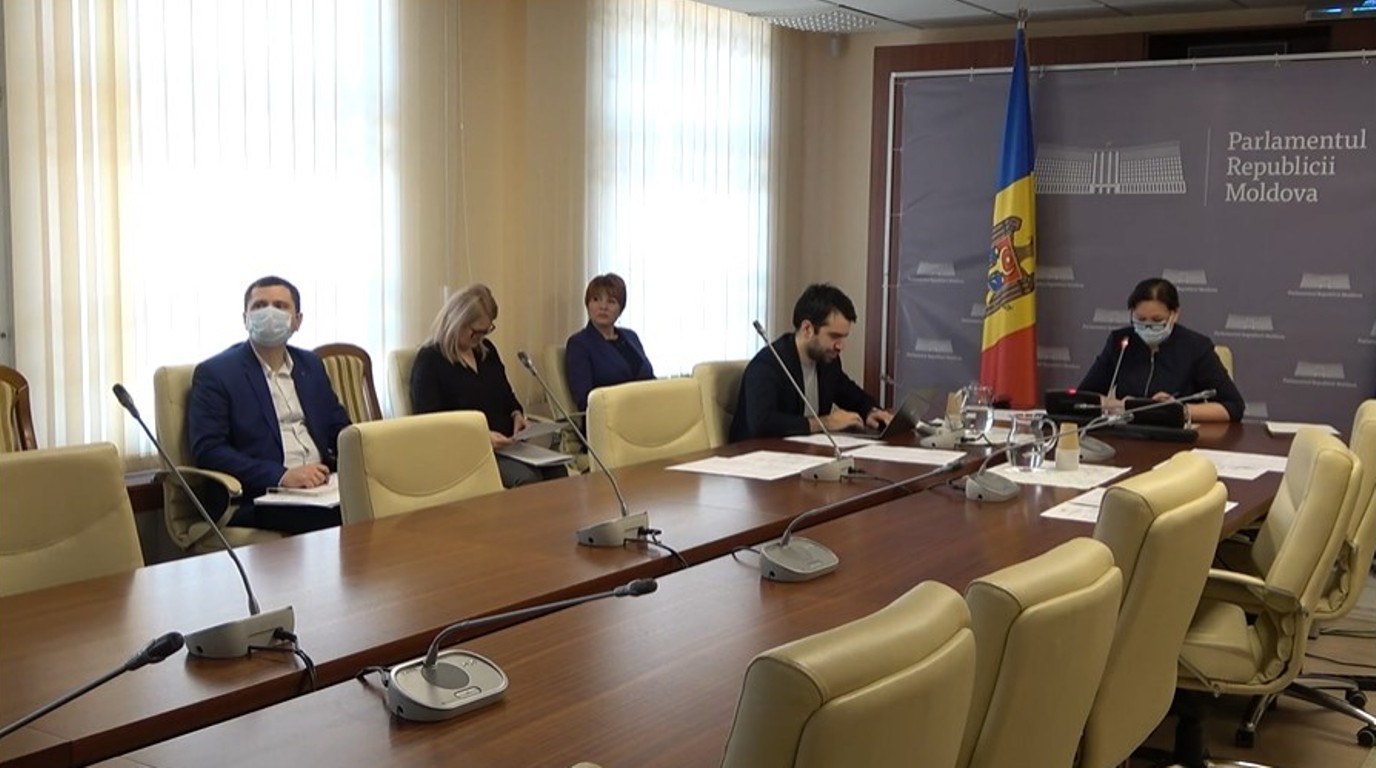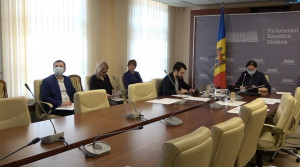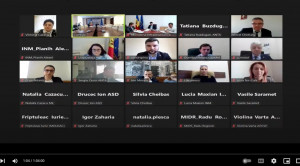
The Court of Accounts of the Republic of Moldova (CoARM) presented on March 23, within the Public Finance Control Committee (PFGCC) of the Parliament of the Republic of Moldova, the Audit Report on the consolidated financial reports of the Ministry of Economy and Infrastructure (MEI) concluded on December 31, 2020 and the Compliance Audit Report on public procurement within the MEI in 2019-2020.
A brief presentation of the Audit Reports was made by Viorel Chetraru, vice-president of the CoARM, as well as by the people in charge of the audit.
The Vice-President of the CoARM mentioned that, for the third consecutive year, the Court of Accounts issued a qualified opinion on the consolidated financial statements of the MEI, making recommendations to address the shortcomings identified and to improve the institutional management. At the same time, concerning the cases of ascertaining the suspicions of fraud, the competent body - the General Prosecutor's Office - was notified.
The basis for the qualified opinion was determined by the fact that the State Road Administration did not count in 2018 the works received for the construction of the bypass variant of Ungheni city in the amount of 207.35 million lei.
Likewise, the information in the consolidated financial statements of MEI related to non-financial assets at aggregate level was undervalued by 32.31 million lei and overvalued by 18.96 million lei, which were expressed, including by:
- Improper allocation, by the Competitiveness Improvement Project Implementation Unit II, of capital investments in assets under execution;
- Non-receipt, by the central apparatus of the MEI, of the technical project “Pipeline for interconnection of the Romanian natural gas transmission system with the natural gas transmission system of the Republic of Moldova, phase II, on the Ungheni-Chisinau direction” worth 11.74 million lei, although the construction works have been completed and the pipeline put into operation;
- Non-compliant classification of special constructions amounting to 4.82 million lei for other fixed assets, which allowed their untrue reporting and non-calculation of the respective wear and tear;
With regard to the compliance of public procurement within the MEI during 2019-2020, a number of deficiencies were detected.
- The non-compliances detected within the public procurement planning stage were manifested throughout:
- non-publication of public procurement plans on the website, with a total value of 28.7 million lei;
- failure to implement the approved plans concerning public procurement, by about 33% (or by 49.0 million lei) in 2019 and by 46% (or by 65.5 million lei) in 2020;
- carrying out public procurements not included in the annual plans, in a total amount of about 7.2 million lei;
- non-transparent planning or lack of planning of low value public procurement, which amounted to over 7.4 million lei;
- the acquisition of goods and services outside the contractual relations, in a total amount of over 3.3 million lei;
- The non-compliances detected within the stage of public procurement were manifested throughout:
- the division of acquisitions in order to avoid the legal procedure, in a total amount of 1.9 million lei;
- making purchases prior to the date of concluding or registering procurement contracts, in the amount of 1.2 million lei;
- failure to obtain from the economic operators the guarantee of good execution for the public procurement contracts whose total value constituted 11.5 million lei;
- At the stage of monitoring, control and reporting of public procurement, were stated non-compliances, expressed throughout:
- failure to prepare and publish reports on the monitoring of the execution of public procurement contracts by procurement working groups;
- non-publication in the Public Procurement Bulletin of the report on the outcome of the public procurement procedures;
- untrue, late presentation, or failure to report on low value public procurement contracts.
The mentioned above were mainly conditioned by the lacunar normative framework related to the field, as well as by the fragmentary internal managerial control established within the entities.
In the context of today's hearings, were also discussed the measures needed to remedy the irregularities, which are to be taken following the recommendations made by the Court of Accounts.
 WITH DEFICIENCES OF VIEW
WITH DEFICIENCES OF VIEW Youtube
Youtube Facebook
Facebook


 print
print






